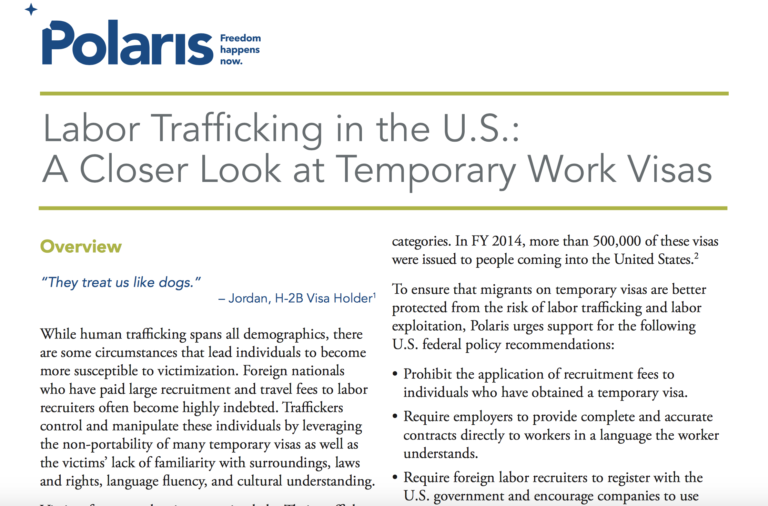Since December 2007, Polaris has identified nearly 30,000 human trafficking and labour exploitation cases in the United States through operating the National Human Trafficking Resource Center hotline and BeFree Textline. In approximately 18% of these cases, at least one victim of the situation had a temporary visa.
This report provides crucial insight into the experiences of these temporary workers in the U.S., the visas most frequently associated with trafficking and exploitation, and the barriers victims face in accessing help.
Temporary visa holders often pay large recruitment and travel fees for the opportunity to work in the United States — and the debts they incur leave them particularly vulnerable to being victimized. Traffickers can control and manipulate these individuals who have few options, lack familiarity with U.S. laws and rights, and face significant language and cultural barriers. The visa rules also frequently restrict their ability to change employers. But there are solutions, including: prohibiting recruitment fees, requiring accurate contracts, modifying data reporting requirements, registration of foreign labour recruiters, and more.

